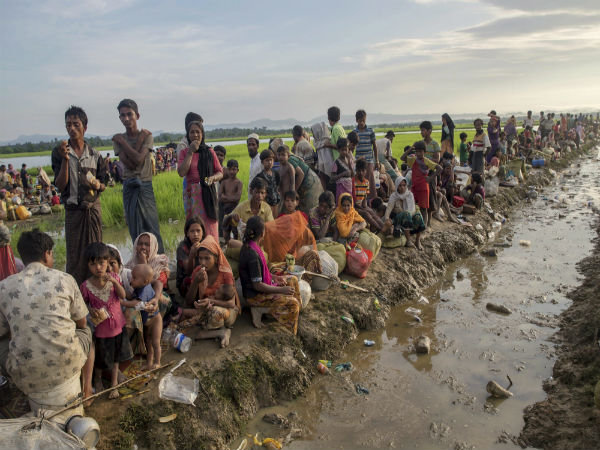
Rohingya crisis: How single mothers, lost children are struggling in refugee camps
A new survey by the UN has revealed a worrying trend: one-third of the Rohingya refugee families are vulnerable.
Dhaka, Nov 9: At least 622,000 Rohingya refugees have taken shelter in various camps in Bangladesh's Cox's Bazar district since they fled Myanmar to avoid violence and persecution beginning from August 25.
Aid agencies, including the United Nations (UN), working for the Rohingyas in the refugee camps have been constantly highlighting their plight.

Recently,
the
UN
High
Commissioner
for
Refugees
(UNHCR)
finished
the
first
stage
of
Rohingya
family
counting
in
Bangladesh
using
innovative
data
collection
technology.
The
survey
has
revealed
a
worrying
trend:
one-third
of
the
refugee
families
are
vulnerable.
"In an innovative and revealing family counting exercise, the UNHCR teams found that one-third of the families are vulnerable," Duniya Aslam Khan, spokesperson for the UNHCR, told reporters in Geneva.
Khan said that "14 per cent are single mothers holding their families together with little support in harsh camp conditions. Others are struggling with serious health problems or disabilities."
The survey also revealed high proportion of elderly people at risk and unaccompanied and separated children--some of them taking care of younger siblings--in the refugee camps.
In fact, children and women made up more than half of the total population. The individual biometric registration exercise, jointly conducted by the UNHCR and the Bangladesh's Refugee Relief and Repatriation Commission (RRRC), took place in the Kutupalong camp, makeshift and extension areas and Balukhali makeshift areas.
More than 100 UNHCR-hired enumerators have so far gathered data on 120,284 families comprising 517,643 refugees.
The emergency registration was made successful thanks to the new data collecting technology, stated a press release of the UN.
The geo-tagged data collection device was designed to use GPS even without network coverage, making data consolidation and analysis more efficient. The barcoded RRRC Family Counting Card has also given a shape to Rohingya refugees living in Bangladesh in terms of demography and location.
"Because the refugees are still on the move and site zoning is still in progress, the enumerators visit their shelters individually, meaning that refugees do not have to queue to be counted," Khan explained.
OneIndia News


 Click it and Unblock the Notifications
Click it and Unblock the Notifications

































